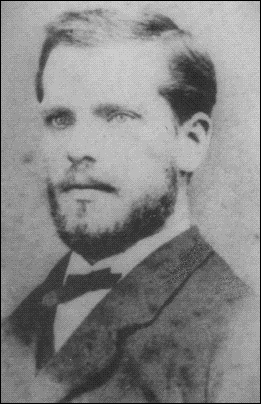|
All atoms and molecules have a very weak, short-range attraction
for one another known as van der Waals attraction. They also have
finite though tiny molecular volumes.
At ordinary temperatures, where the molecules of a gas are moving
rapidly, and at moderate pressures, where on the average they are
far apart, both van der Waals attractions and molecular volumes
can be neglected, and molecules can be treated as freely moving,
nonattracting point particles.
Under these conditions the behavior of all gases is described by
the ideal gas law, PV = nRT, in which T is the absolute temperature,
obtained by adding 273.15 to the centigrade temperature.
The speed with which molecules move in a gas depends on its temperature;
and in principle, if ideal gas behavior were followed all the way
to absolute zero, all molecular motion would stop at that point
and both pressure and volume would fall to zero.
Right: Johannes Diderik van der Waals (1837 - 1923)
|

|
